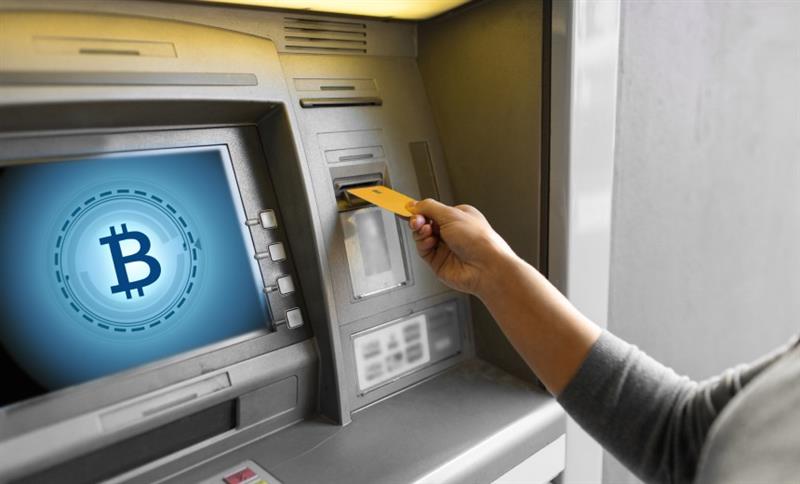
Cryptocurrency Fraud
,
Finance & Banking
,
Fraud Management & Cybercrime
As Crypto ATMs Facilitate Scams and Money Laundering, More Governments Take Aim
Mathew J. Schwartz (euroinfosec) •
July 18, 2025

British authorities are continuing their crackdown on cryptocurrency ATMs being operated inside the country, with police this week announcing the arrest of two suspected operators.
See Also: New Attacks. Skyrocketing Costs. The True Cost of a Security Breach.
Crypto ATMs are a fixture at many convenience stores and gas stations globally and promise to allow users to convert cash into crypto assets or crypto assets into cash. Officials warn that fraudsters regularly use such devices to scam individuals out of money and that some operators program their machines to accept cash without ever dispensing crypto.
The Metropolitan Police Service’s cryptocurrency team on Thursday, working with the Financial Conduct Authority, said it arrested the two suspects in southwest London on suspicion of money laundering and running an illegal crypto asset exchange. They were interviewed and released while police continue their investigation.
Since January 2021, the FCA has required crypto asset businesses providing certain services in the country to apply to register their business with it. Operators must comply with Money Laundering, Terrorist Financing and Transfer of Funds Regulations 2017, as well as comply with the money laundering regulation’s requirements.
“There are currently no legally operated crypto ATMs in the U.K., so using one only supports crime,” said Therese Chambers, the FCA’s executive director of enforcement and market oversight. “If you’re operating a crypto ATM or exchange illegally, then you should expect serious consequences.”
As part of its ongoing crypto ATM crackdown, the FCA said it investigated 38 locations in 2023 and disrupted 30 machines. “The number of crypto ATMs advertised on Coin ATM Radar in the U.K. has fallen from more than 80 in 2022 to nil in 2024,” the FCA said, referencing a site that tracks the location of crypto ATMs globally.
First Crypto ATM Operator Sentenced
The regulator last September prosecuted its first-ever case involving running unlicensed crypto ATMs when it charged London resident Olumide Osunkoya with unlawfully operating crypto ATMs across 28 different locations via his company, GidiPlus Ltd.
The FCA said Osunkoya earned a “substantial profit from the operation, charging a typical markup on each transaction of between 30% and 60%,” with his ATMs from December 2021 to September 2023 processing $3.5 million.
The defendant applied to the FCA for GidiPlus to be registered under money laundering regulations in 2020, which the regulator rejected in December 2021. “Osunkoya later transferred the machines from GidiPlus Ltd. and personally operated a reduced network of up to 12 crypto ATMs under a false name and company to evade detection,” the FCA said.
In October 2024, Osunkoya pleaded guilty in court to five offenses: two tied to running illegal crypto ATMs, as well as forgery, using false documents and possessing criminal property.
In February, a judge at England’s Southwark Crown Court sentenced the 46-year-old defendant to serve four years in prison.
Crypto ATMs Thrive Globally
As of Friday, Coin ATM Radar reported that the greatest number of crypto ATMs globally – amounting to 30,300 ATMs, or 78% of the global total – are located in the United States, followed by 9% in Canada, 4.9% in Australia and 4.6% in Europe.
The Federal Trade Commission reported that Americans lost over $65 million to crypto ATM fraud in the first half of 2024, with a median loss of $10,000. The FTC noted that most such fraud never gets reported, meaning the overall losses are likely much higher.
Such findings are driving more governments and lawmakers to take aim at crypto ATMs.
Last week, New Zealand announced plans for an outright ban. The move is designed to “make it more difficult for criminals to convert cash to high-risk assets such as cryptocurrencies,” said Associate Justice Minister Nicole McKee.
Last month, the city of Spokane, Washington, also announced a ban on all crypto ATMs. “Unfortunately, many in our community have fallen victim to this growing issue, with numerous individuals losing their life savings,” said Spokane Police Department Detective Tim Schwering.
Earlier this year, Nebraska Governor Jim Pillen signed into law a crypto ATM law that, starting in September, will require all crypto ATM operators to be licensed by the state, detail the location of every ATM, limit the transactions a single individual can make in a single day – $2,000 for new customers and $10,500 for existing customers – and agree to fee caps. In addition, the state said that anyone who was “fraudulently induced to send money to a scammer using a crypto ATM,” who reports and correctly documents the fraud to authorities within 30 days must be given a full refund of the transaction and all fees by the operator.
Similar proposals are afoot on the national level too. In February, Sen. Dick Durbin, D.-Ill., introduced a Crypto ATM Fraud Prevention Act with similar requirements. His bill would also require crypto ATM operators to employ a chief compliance officer, develop a comprehensive anti-fraud policy and file it with the Financial Crimes Enforcement Network, as well as require operators to require “live, verbal confirmation for any transaction greater than $500” as a fraud-fighting measure.
Romance Scams
On Thursday, the Australian Transaction Reports and Analysis Centre, aka AUSTRAC, on Thursday announced new, minimum standards with which crypto ATM operators must comply, including a daily $3,250 per-person limit on deposits or withdrawals.
A task force launched by the financial intelligence agency to investigate crypto ATMs and fraud found some operators failing to comply with anti-money laundering and counter-terrorism financing laws, including requirements to educate users about scams as well as report transactions to authorities.
“Our taskforce identified people aged over 50 as some of the most frequent users of crypto ATMs in Australia,” said Brendan Thomas, CEO of AUSTRAC. “This is a huge concern because, as evidence suggests, a large number of 60- to 70-year-old users are victims of scam activity.”
In one case earlier this year, AUSTRAC said an Australian man in his 50s was duped into moving $130,000 as part of a romance scam by a nonexistent remote girlfriend, who tricked him into serving as a money mule.
“He began receiving unexpected deposits in his bank account,” AUSTRAC said. “At the request of his girlfriend, he withdrew these funds and used a crypto ATM to buy cryptocurrency, which was transferred to a digital wallet controlled by a third party.”




